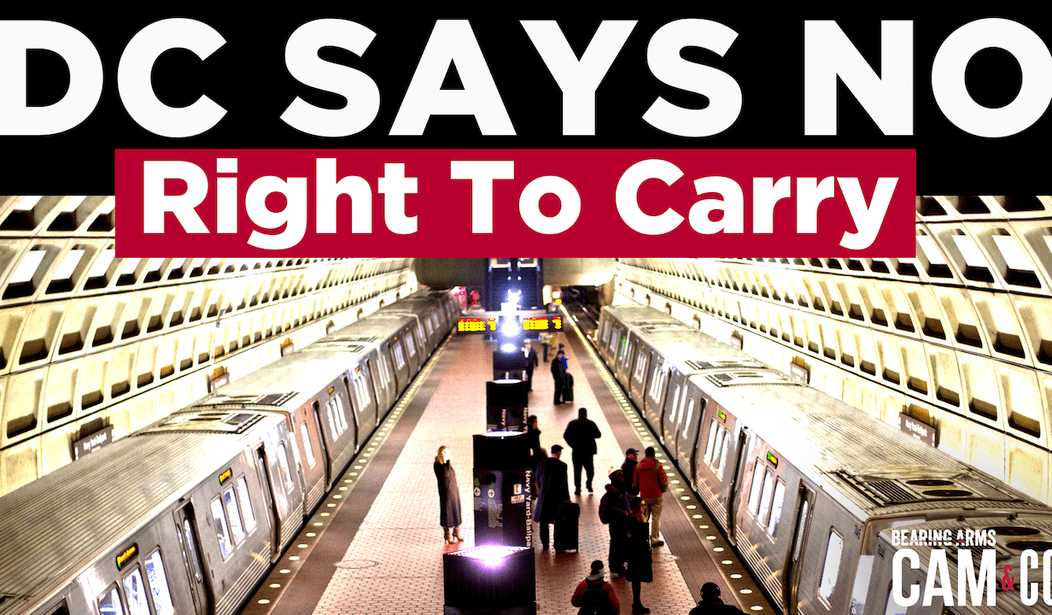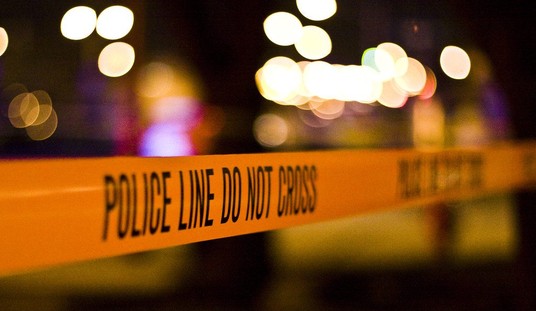One of the first lawsuits filed after the Supreme Court struck down New York’s “may issue” carry laws and firmly established that the right to bear arms in public for self-defense is protected by the Second Amendment was a challenge to the ban on firearms on the Metro public transportation system that serves Washington, D.C. and the city’s suburbs in Maryland and Virginia. The lawsuit argued that, based on the Court’s opinion in Bruen, the complete ban is a violation of the right to keep and bear arms and that the transit system should not be considered a “sensitive place” where the Second Amendment doesn’t apply.
In the complaint, the four plaintiffs (all of whom already possess a valid carry license in Washington, D.C.) acknowledge that D.C. has the authority to “regulate consistent with the nation’s historical tradition of firearms regulation the manner of carrying arms, including handguns, and may prohibit certain arms in narrowly defined sensitive places,” but argues that the blanket ban on lawful concealed carry on public transport isn’t narrowly defined or confined to a truly “sensitive place”.
… Even if the public transportation vehicles in question could be labeled “sensitive places”, the lawsuit argues that the ban has severe implications on the right of self-defense for those who have no other means of transportation and is a “substantial infringement” on their Second Amendment rights, with the practical effect of disarming all Metro riders “for the entirety of their journey.”
Now Washington, D.C. Attorney General Karl Racine has weighed in with the District’s response to the lawsuit, and unsurprisingly is arguing that it’s perfectly acceptable to bar the hundreds of thousands of riders from carrying a firearm for self-defense.
Attorney General Karl Racine, in a pretrial motion in a federal suit filed by four people seeking to carry guns on the public transit system, said Metro, with rail and bus passengers, including thousands of federal workers and children riding to school, is one of the “sensitive places,” where guns can remain prohibited.
The lawsuit, which was filed shortly after the Supreme Court’s decision expanding gun rights, says while bans in schools, stadiums and restaurants are likely constitutional, the gun owners should be allowed to carry concealed weapons on Metro.
Racine disagreed, saying, “every modern mode of interstate transportation prohibits the carrying of loaded firearms on one’s person,” including commercial aircraft and interstate buses.
“In dense spaces characterized by jostling and interpersonal conflict, the risk of a gun being accidentally discharged or hastily fired is tragically high — not only for the innocent bystanders who may be shot, but also for the countless other victims who may be crushed or thrown from a platform by a panicked crowd,” Racine wrote.
In addition, Racine said any incident involving a gun “could disrupt transit of transit for the hundreds of thousands relying on government-provided transportation each day.”
Unfortunately for Racine, simply barring lawful concealed carry doesn’t stop criminals from violating the “gun-free zones”, as we’ve seen in New York City, Chicago and Washington, D.C. Instead, they prevent law-abiding citizens from being able to defend themselves against violent attacks inside these “sensitive places”.
Racine may be correct about interstate transportation banning the carrying of loaded firearms, but I would note that airlines and Amtrak at least allow for firearms to be stowed in checked baggage. Metro doesn’t provide riders with that opportunity, which means that those concealed carry holders who are dependent on public transportation are in essence disarmed throughout their day because they’re unable to lawfully bring their gun on board a bus or train car.
But as we discuss on today’s Cam & Co (today’s video can be found at the bottom of this post), Racine’s argument also opens the door to a challenge on those interstate bans on carrying. Why is the Second Amendment the only constitutionally-protected right that stops at the border of your home state? As a Virginian with a valid concealed carry license, why can’t I exercise my right to bear arms in neighboring Maryland or Washington without first obtaining a license to carry issued by those jurisdictions? In fact, some states like New York and California don’t issue licenses to non-residents, which means my right to keep and bear arms in self-defense ends at the state line. How can that be if we’re talking about a real and fundamental right?
That’s not the main thrust of this particular lawsuit, however. Instead, the complaint focuses on the “sensitive place” designation for Metro, and rightfully points out that the restriction has a chilling effect on the Second Amendment rights of riders; particularly those who don’t have a car of their own and must depend on public transportation to get from Point A to Point B. Even if those individuals can lawfully carry in each of those locations, by prohibiting them from bringing their legally-owned guns onto Metro the transportation network is preventing them from doing so since they have no legal way to keep their firearm with them as they’re traveling.
D.C.’s public transportation system isn’t the only one facing a lawsuit over its prohibition on concealed carry. On Tuesday, the Second Amendment Foundation announced that it will be backing a similar lawsuit aimed at Illinois’ ban on firearms in public transportation, with SAF founder and executive vice president Alan Gottlieb remarking that the state is “trying to perpetuate an indefensible public disarmament policy despite the clear meaning of Supreme Court rulings and we’re going to help the plaintiffs put an end to this nonsense.”
That’s a welcome development, and hopefully we’ll soon see these infringements on the right to bear arms disappear from the books and be replaced with policies that respect the right to carry and the right of self-defense for all those who rely on public transportation to get them where they need to be.








Join the conversation as a VIP Member